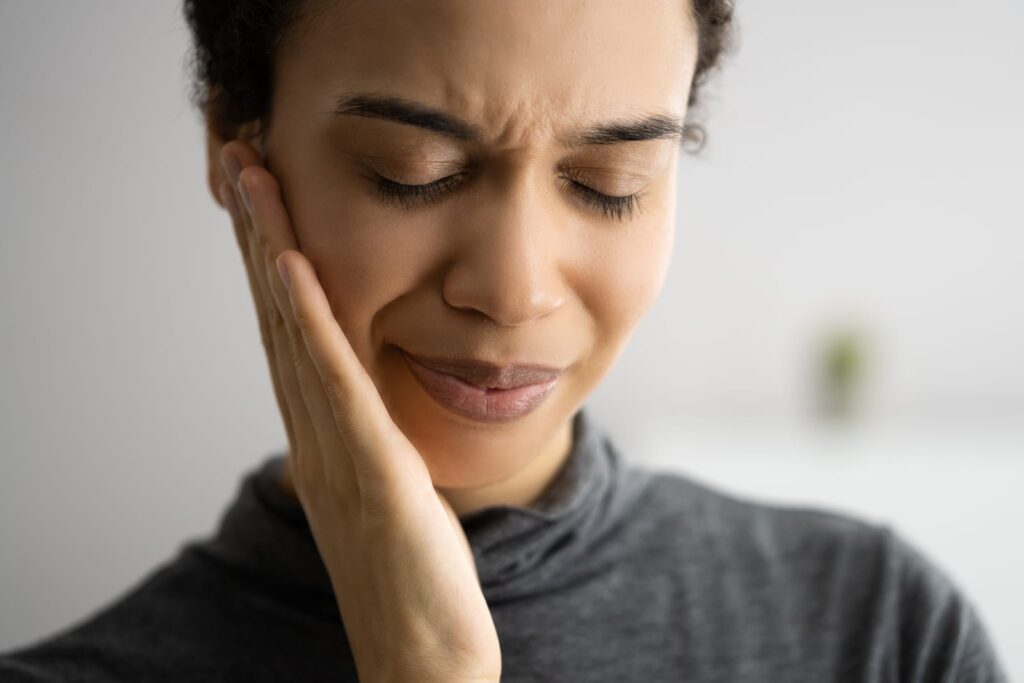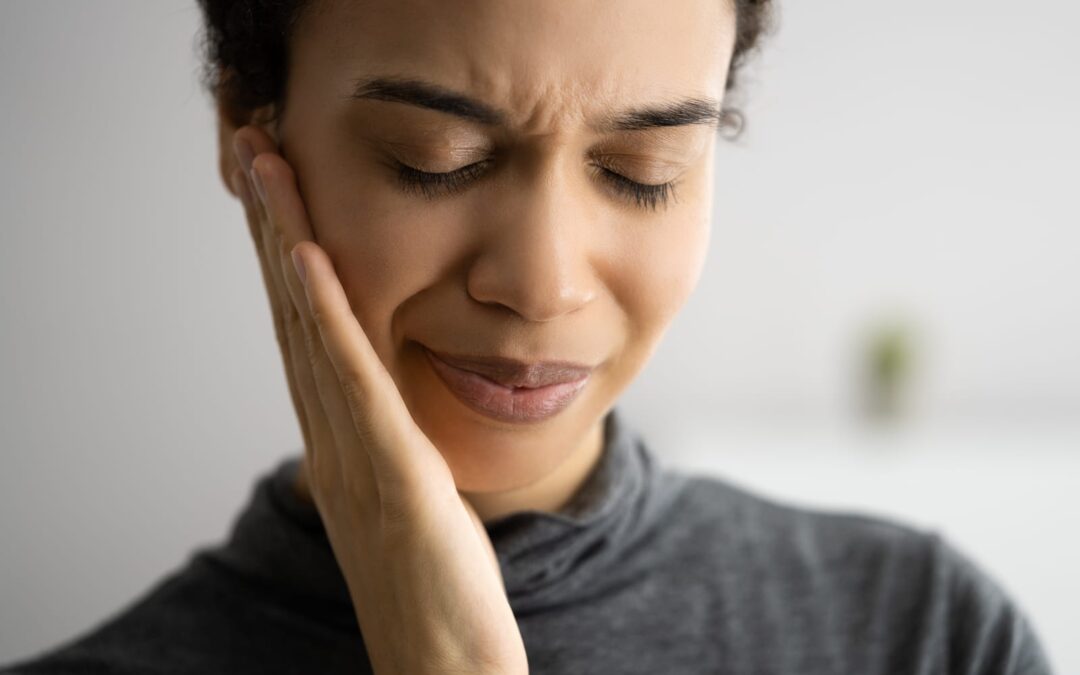Toothaches strike at the worst possible moments. Whether it’s during a family gathering, late at night, or right before an important meeting, dental pain never seems convenient. However, understanding effective toothache remedies can provide crucial relief while you arrange professional dental care.
Utah Dental Center in St. George understands that dental emergencies don’t follow regular business hours, and as a leading St. George Dentist, we’re here to help. As a leading dental practice in southern Utah, we’ve helped countless patients navigate toothache pain and receive the comprehensive care they need. Our experienced team, led by Dr. Aaron and Dr. Nate Salmon, provides personalized treatment using cutting-edge technology.
Before exploring home remedies, it’s essential to understand that these solutions provide only temporary relief. Persistent tooth pain requires professional evaluation and treatment. Additionally, this information doesn’t replace medical advice from qualified healthcare providers. If you experience severe or ongoing dental pain, contact our office at (435) 656-3868 immediately.
Common Causes of Toothaches
Understanding what causes tooth pain helps you make informed decisions about treatment. Several conditions can trigger dental discomfort, ranging from minor irritation to severe infections that require immediate attention.
Dental Decay
Tooth decay remains the most common cause of dental pain. Bacteria in your mouth produce acids that gradually weaken tooth enamel. As decay progresses deeper into the tooth structure, it reaches sensitive inner layers, causing sharp or throbbing pain. Furthermore, cavity pain often intensifies when consuming hot, cold, or sweet foods and beverages.
Gum Disease
Periodontal disease affects the tissues surrounding your teeth. Early stages, known as gingivitis, cause mild discomfort and bleeding. However, advanced gum disease can create significant pain as bacteria destroy the supporting structures around your teeth. Moreover, untreated gum disease leads to tooth mobility and potential tooth loss.
Tooth Abscess
Abscessed teeth represent serious dental emergencies. These infections develop when bacteria penetrate deep into the tooth pulp or surrounding tissues. Consequently, abscesses cause intense, throbbing pain that may radiate to your jaw, ear, or neck. Additionally, fever, facial swelling, and bitter tastes in your mouth often accompany abscessed teeth.
Sinus Infections
Upper tooth pain sometimes stems from sinus infections rather than dental problems. Inflamed sinuses create pressure that affects nearby tooth roots. Therefore, multiple upper teeth may feel painful simultaneously. Typically, sinus-related tooth pain worsens when bending over or lying down.
TMJ Disorders
Temporomandibular joint disorders (TMDs) affect the jaw joints that connect your skull to your lower jaw. TMJ problems can cause referred pain that feels like toothaches. Additionally, jaw muscle tension from teeth grinding or clenching creates similar discomfort. These conditions often produce pain that varies throughout the day.

Immediate Home Remedies for Toothache Relief
While waiting for professional dental care, several safe toothache remedies can help manage toothache pain. These methods provide temporary relief but shouldn’t delay necessary dental treatment.
Over-the-Counter Pain Relievers
Non-prescription medications offer effective toothache relief when used properly. Ibuprofen works particularly well for dental pain because it reduces inflammation, alongside providing pain relief. Take 400-600 mg every six to eight hours, following package directions carefully. Alternatively, acetaminophen provides pain relief without anti-inflammatory effects.
Never place aspirin tablets directly against painful teeth or gums. This practice can cause chemical burns to delicate oral tissues. Instead, swallow pain medications as directed on their packaging.
Saltwater Rinse
Saltwater rinses provide gentle, natural relief for toothache pain. Mix half a teaspoon of salt into a cup of warm water until the salt is dissolved. Gently swish the solution around your mouth for 30 seconds, then spit it out. Repeat this process several times daily.
Salt water helps reduce swelling and fights bacteria that contribute to dental infections. Additionally, this remedy costs virtually nothing and utilizes ingredients commonly found in most kitchens. However, avoid using extremely hot water, which can increase pain sensitivity.
Cold Compress
Cold therapy effectively numbs toothache pain and reduces facial swelling. Wrap ice cubes in a thin towel or use a commercial cold pack. Apply the compress to the outside of your cheek for 15-20 minutes at a time. Take breaks between applications to prevent tissue damage from prolonged exposure to excessive cold.
Cold compresses are most effective for managing acute pain and swelling. They constrict blood vessels, reducing inflammation and temporarily blocking pain signals. Never apply ice directly to your skin or inside your mouth.
Peppermint Tea Bags
Cooled peppermint tea bags offer soothing relief for irritated gums and toothache. Steep a tea bag in hot water for several minutes, then let it cool until it’s comfortably warm. Place the moist tea bag against the affected area for 10-15 minutes.
Peppermint contains natural compounds that create cooling, numbing sensations. Additionally, the gentle pressure from the tea bag can provide comfort. Used tea bags work just as effectively as fresh ones for this purpose.
Clove Oil
Clove oil has been used for centuries to treat dental pain. This natural remedy contains eugenol, a compound with numbing and antibacterial properties. Apply a small amount of clove oil to a cotton swab and dab it gently on the affected tooth.
Use clove oil sparingly, as it can irritate soft tissues if applied excessively. Begin with small amounts to assess your sensitivity. Additionally, avoid swallowing large quantities of clove oil. If you don’t have pure clove oil, you can gently chew whole cloves near the painful area.
When to See a St. George Dentist
Certain symptoms indicate that seeking a St. George Dentist can’t wait. Recognizing these warning signs helps you seek appropriate treatment before conditions worsen significantly.
Persistent Pain
Toothache pain lasting longer than 24 to 48 hours requires professional evaluation. Persistent discomfort often indicates underlying problems that won’t resolve without treatment. Additionally, pain that worsens over time suggests progressive dental issues needing immediate attention.
Don’t wait for severe pain to develop before seeking dental care. Early intervention typically results in simpler, more comfortable treatments.
Signs of Infection
Dental infections can spread rapidly and become life-threatening without proper treatment. Seek immediate dental care if you experience fever, facial swelling, difficulty swallowing, or swollen lymph nodes. These symptoms indicate that the infection may be spreading beyond the original tooth.
Moreover, bad tastes in your mouth or discharge around your teeth often signal active infections. These conditions require antibiotic treatment and professional dental intervention.
Pain Accompanied by Other Symptoms
Toothaches combined with jaw pain, earaches, or headaches may indicate complex dental problems. TMJ disorders, advanced decay, or dental trauma can cause radiating pain patterns. A professional evaluation helps identify underlying causes and determine the most appropriate treatment approaches.

What to Expect at Utah Dental Center
Understanding what happens during dental appointments can reduce anxiety and help you prepare for treatment. Our team at Utah Dental Center prioritizes patient comfort while delivering comprehensive care.
Comprehensive Examination
Your appointment begins with a thorough examination of your teeth, gums, and surrounding structures. One of our dentists will carefully assess the affected area and ask about your pain symptoms. This evaluation helps identify the source of your discomfort and potential contributing factors.
We also review your medical history and current medications. This information enables us to provide safe and effective treatment tailored to your specific needs.
Diagnostic Imaging
Digital X-rays often provide crucial information about tooth and jaw problems that are not visible during a visual examination. These images reveal decay between teeth, abscess formation, bone loss, and other hidden issues. Our advanced digital imaging technology produces high-quality images with minimal radiation exposure.
Treatment Options
After diagnosis, we’ll explain your treatment options in detail. Simple cavities may require fillings, while more complex problems might need root canal therapy or extractions. We prioritize conservative treatments whenever possible, preserving your natural teeth when feasible.
Our team takes the time to answer your questions and address any concerns you may have about proposed treatments. We believe informed patients make better decisions about their dental care.
Preventative Measures for Toothaches
Prevention remains the most effective approach to avoiding toothache pain. Simple daily habits can significantly reduce your risk of developing dental problems.
Good Oral Hygiene Practices
Brush your teeth twice daily using fluoride toothpaste. Proper brushing removes plaque and bacteria that cause decay and gum disease. Additionally, daily flossing cleans areas between teeth that brushes can’t reach effectively.
Consider using an antimicrobial mouthwash to reduce bacterial levels in your mouth. However, mouthwash shouldn’t replace proper brushing and flossing techniques.
Regular Dental Check-ups
Professional dental cleanings and examinations, performed every six months, help identify problems before they cause pain. Our hygienists remove hardened plaque that contributes to gum disease and tooth decay. Furthermore, regular check-ups enable the early detection of cavities, making them easier to treat.
Healthy Diet
Limiting sugary and acidic foods reduces your risk of tooth decay. Bacteria in your mouth feed on sugar, producing acids that weaken tooth enamel. Additionally, frequent snacking exposes your teeth to acid attacks throughout the day.
Choose tooth-friendly snacks like cheese, nuts, and vegetables. Drink plenty of water to help rinse away food particles and bacteria.
Your Partner in Dental Health at Utah Dental Center
Toothache remedies provide valuable temporary relief, but professional dental care addresses the underlying causes of dental pain. Utah Dental Center combines advanced technology with personalized care to help you achieve optimal oral health.
Our experienced team, led by Dr. Aaron and Dr. Nate Salmon, has earned recognition as the “Best of Southern Utah” for four consecutive years. We’re committed to making dental care comfortable, affordable, and accessible for families throughout southern Utah.
Don’t let toothache pain disrupt your life. Contact Utah Dental Center to schedule an appointment with a trusted St. George Dentist, or visit us at 1567 South River Rd, St. George, UT. Our comprehensive dental services include emergency care, general dentistry, cosmetic treatments, and specialized procedures.

